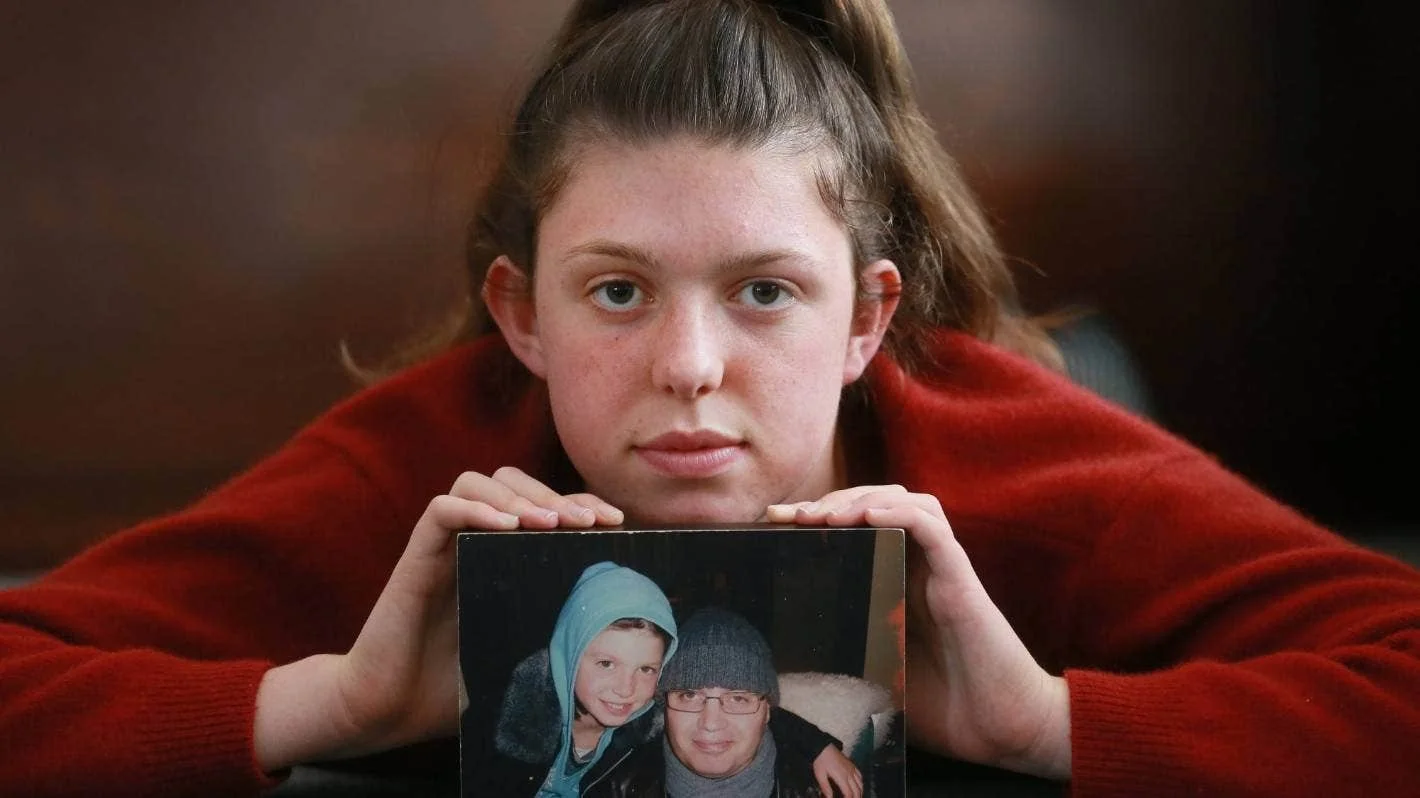By Ellen O'Dwyer and Mark Taylor.
Even when he was too sick to walk, dad made sure the wheels on his chair tracked through the mud at the football pitch sidelines. In the years he was mobile, Rachel would curl the ball through the goal posts of his walker, practising her winning kicks. Rachel Major shared her love of football with her dad Glenn until she was nine. Glenn died at the age of 42 of a brain tumour, having been diagnosed with cancer before Rachel was born.
Major, who is now 18 and head girl at Waikato Diocesan School for Girls is a first-time voter who will choose ‘no’ in one referendum.
She doesn’t want euthanasia to become legal. Glenn was diagnosed as having six months to live when Rachel was one, four and nine years old – the last time he didn’t make it. Mysteriously, he held on for eight years, spending extended periods at hospital and being admitted and discharged from hospice twice. “All I remember was that we were so ready that I’m pretty sure the choir was already practising his funeral songs. It was that imminent.”
Rachel’s mother Heather said the doctors didn’t have an explanation for why he was outliving his prognosis. “Glenn was actually clinically dying, so his body was shutting down. It wasn’t even like in six months I don’t think you’ll be here...he was dying, but didn’t.” Given Glenn had a six-month prognosis and was of sound mind, he would have been eligible to choose assisted dying if it was available. Rachel said she would have “missed out on so much”, if her dad had made that choice.
Visiting hospital after school became normal, Rachel said, as well as holding recorder concerts and birthday parties at the hospice Glenn lived in for his final year. “I had to visit dad every day after school in the rest home so [my childhood] was quite different to other kids. “But that wasn’t the first thing I saw, I saw I had a dad and that I loved him and he loved me. “I didn’t think of him as any less of a person or any less of a dad.”
Rachel said she has been researching the End of Life Choice bill since she was first asked by anti-euthanasia group Defend NZ to share her story. When she asked some senior classmates if they knew about euthanasia, she said about three quarters didn’t know the meaning of the term. “I thought if they don’t know what they are voting on and this is going to become law, then its pretty serious and I need to do something about that.”
Since then Rachel has been holding talks at schools and public meetings and travelled down to parliament to watch the debate last year. Among her concerns is the pressure an assisted dying option might place on the terminally ill, especially if they feel like a burden, she said. “Someone with brain cancer or anyone with terminal illness they can feel pretty low and depressed...and if you felt that low, being in a lot of pain, it would really test you. “You almost have to justify why you choose not to take it because it’s there and it’s legal and OK.” When asked whether individuals should have a choice to die, Rachel said: “choice is great, but you have to weigh up choice with public safety. “The reason we abolished death penalty is because we didn’t want a single wrongful death, and for something like this where psychological things can come into it there are probably going to be wrongful deaths.” Both sides of the debate were coming from a place of compassion, Rachel said. “At first it was about my personal story, but now that I’ve done more research I realise it is not just about me.



